Every day in the United States more than 10,000 people reach retirement age. That number is only expected to increase over the next decade.
In fact, 2024 may bring the largest surge yet of Americans turning 65, underscoring the growing need for dedicated spaces that support seniors. United Methodist Community House (UMCH) in Grand Rapids is ready to meet the aging community’s needs.
Edna Williams, a 79-year-old Grand Rapids resident, says it’s the resources and support there that keep her coming to the center day after day.
Recounting the various activities at the center, Williams said, “We go out to different places to eat, have movies at the center on Mondays, and on Tuesdays we go to the bank, different stores or doctors’ appointments.”
Williams, a retired social services employee, says coming to UMCH has given her a reason to get up in the morning.
“I enjoy serving the food and I love helping people that need help,” said Williams. “When they go to the bathroom I’ll go and open the door for them and keep it open so that they can come out with their walker and everything.”
Williams says she never misses participating in the center’s family style meals.
“We enjoy our food, we enjoy everything,” Williams said. “Different people stopped coming, some have passed, but everything is really awesome there and it’s getting much better.”
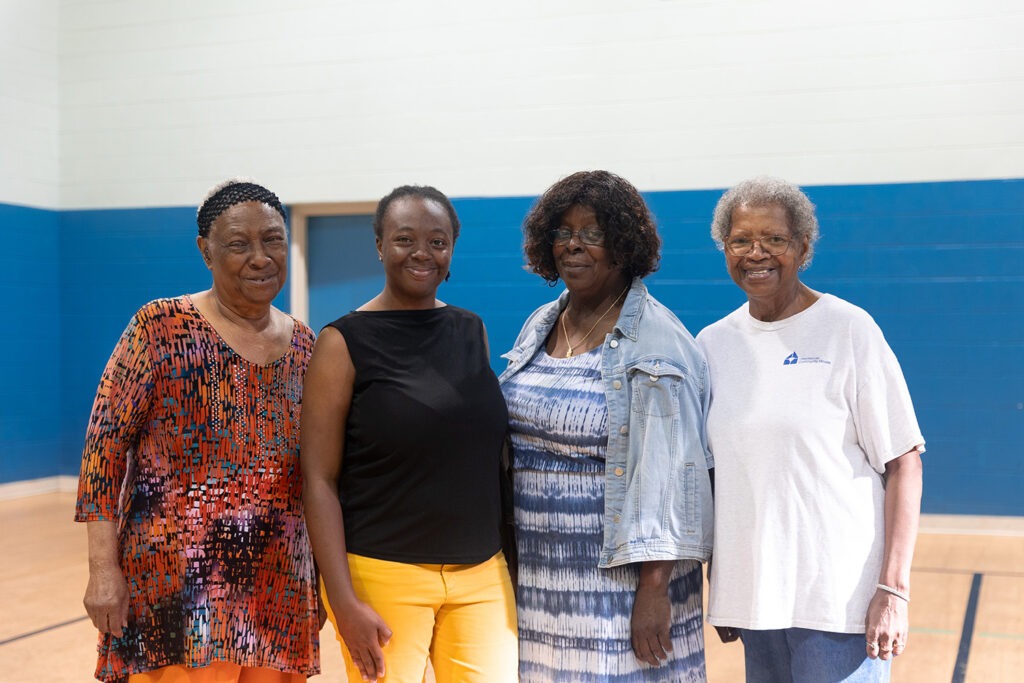
Image By: Isabel Lopez Slattery
On slower days, Williams says she likes to sit at the center with her friends and listen to the sounds of laughter coming from the child care center.
“We hear them laughing and crying and howling and screaming and we just enjoy it,” she said. “It’s beautiful and the children are gorgeous, and they come in and walk around with us sometimes.”
When asked what she would do if she didn’t have UMCH in her life, Williams replied, “That would be a problem. I haven’t the slightest idea. They keep me doing things and moving around and helping others. I love and enjoy speaking to and helping others and it keeps me coming back.”
Even though Williams no longer drives and could not walk to the center, she’s never had to worry about getting there. The organization provides transportation for all older adults to UMCH and back home every day of the week. They also take her to medical appointments whenever she needs a ride.
“UMCH is an example of what I call a ‘community hub,’ a space and place that is culturally and physically accessible to generations of families,” said Ashanti Bryant, senior program officer for Grand Rapids programs at the W.K. Kellogg Foundation.
In the last six years, WKKF has contributed $2 million for the operations and expansion of the facilities at UMCH.
For well over 100 years, UMCH has been creating a space for children, adults and elders to gather while receiving much needed support and resources.
WKKF investments have supported UMCH to not only expand their programming but to add a fresh food grocery store and hearing and vision screenings, with the hope of eventually expanding the range of health services onsite.
The organization also offers daily activities for adults 50-years and older to maintain their wellbeing and improve their overall quality of life.
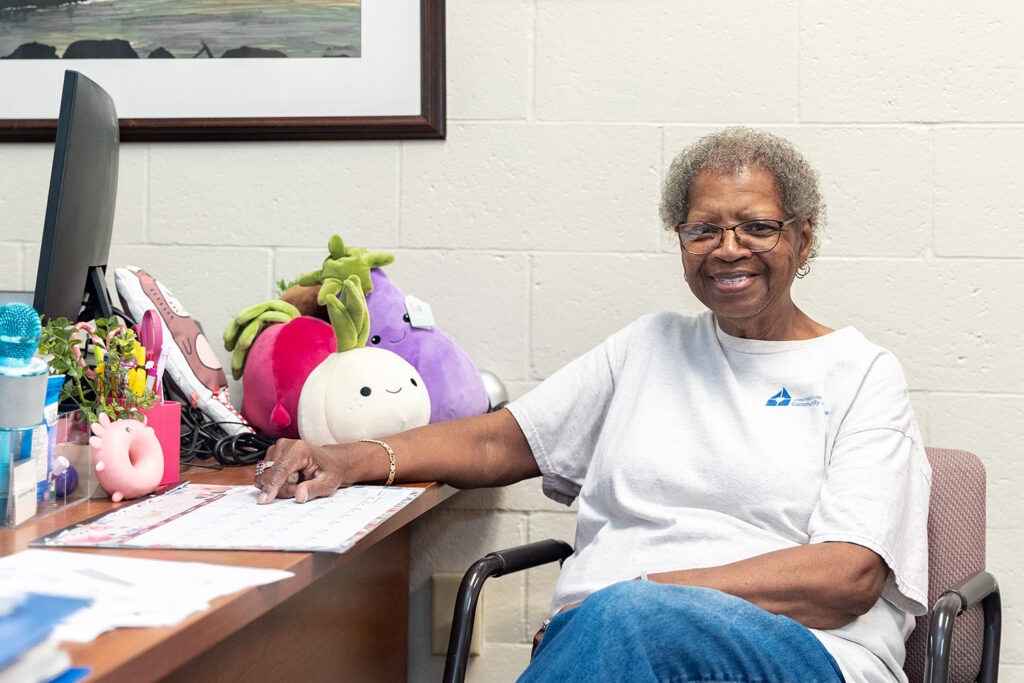
Image By: Isabel Lopez Slattery
UMCH has been on a multi-year journey to reinvent, reiterate, reinforce and reintroduce themselves in the Grand Rapids community through intentional leadership shifts, designing programming around emerging needs, and cultivating new partnerships and relationships to meet their mission.
Having been involved with the organization in various roles for over a decade, UMCH Executive Director Carla Moore is now leading the nonprofit through its next iteration. She says financial stability was top of mind when she stepped into the role of CEO.
“We opened the first nursery school in 1937 in Grand Rapids and then we were one of the first to really launch services and programming to older adults in the ‘70s,” said Moore. “That really established our intergenerational status.”
Over the past 120 years, there have been times of financial stability; however, the model has not transitioned with the times.
“We were established in 1902 and one of the things that has failed to materialize is a model that creates financial sustainability for the organization,” Moore said.
UMCH currently runs on a charitable model depending on grants and donations to meet its financial obligations. This has caused financial insufficiency for the past two decades.

Image By: Isabel Lopez Slattery
To identify a sustainable model, Moore says she needed to start thinking outside the box.
“I had to figure out how to continue our services or increase them so that we would have an ability to generate a revenue stream to support our overhead and address some of the financial concerns that the agency has maintaining and keeping up the facilities,” Moore added. “All while ensuring competitive wages for our employees.”
The childcare center at UMCH does just that by combining child care subsidies to offer spots that are inclusive of low-income families, alongside families who can afford to pay.
“The work we are doing now will establish a new internal revenue model that will create financial sustainability for the next 100 years,” said Moore.
By providing hands-on learning for children aged 6-weeks to 5-years-old through curriculum, socialization and interactions with senior citizens, the nonprofit brings senior care and child care into one place.
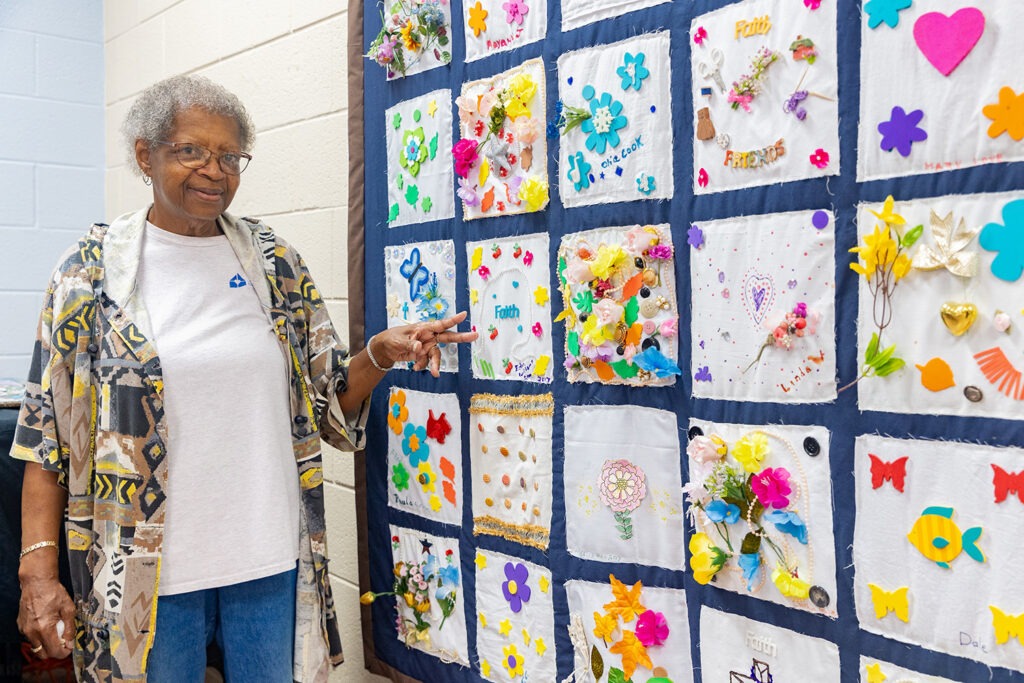
Image By: Isabel Lopez Slattery
“So whether it’s arts and crafts, cooking, gardening, just coming through and saying hello, or older adults that are placed in the classroom and get to assist and work with the children…that whole intergenerational component is so key and important to the liveliness around here,” Moore said.
Today, UMCH is in the midst of expanding as they prepare to launch a $32 million facility improvement and expansion project. The first phase is a complete renovation of the current facility and space adjacent to their current operation, the second is an expansion through a new build.
“So whereas we have a cafeteria right now for our older adults, we’re making a leap from a one room program to a multi room facility that will allow us to quadruple the number of older adults that we’re serving,” Moore said.
UMCH is also expanding its child care center to be able to double the number of children being served today.
“In the end, it’s going to produce an organization that is more self-sufficient and more sustainable,” said Moore.
Moore envisions a future for UMCH where the nonprofit achieves financial independence, reducing dependence on philanthropic support, and she’s proud of their progress so far.
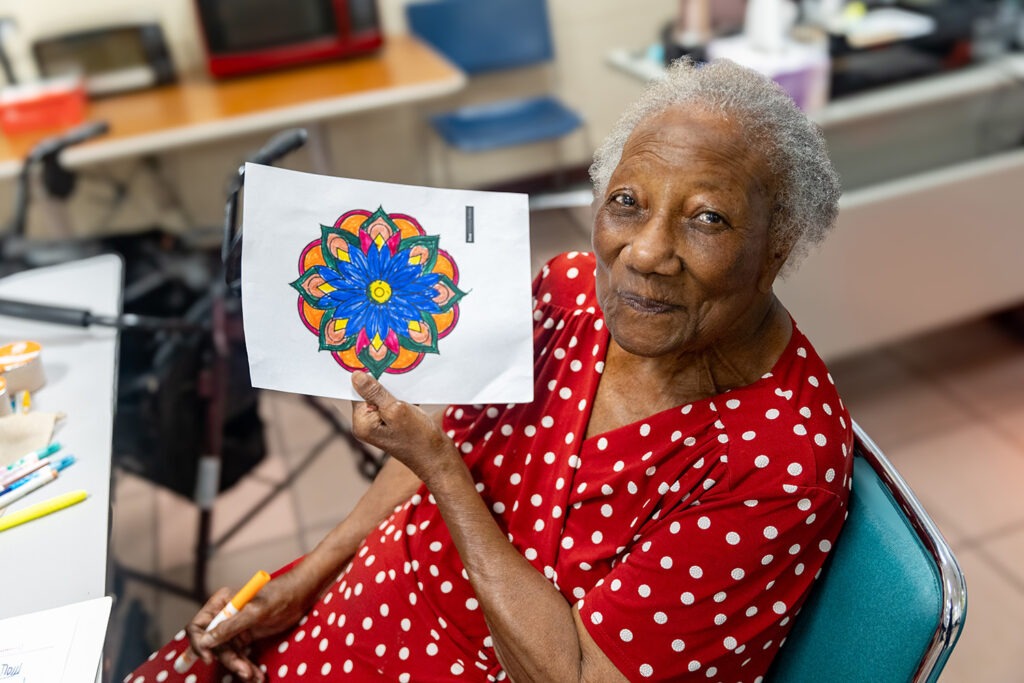
Image By: Isabel Lopez Slattery

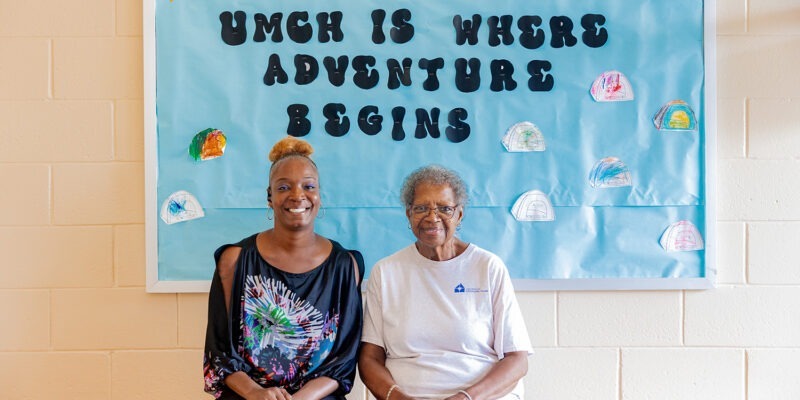
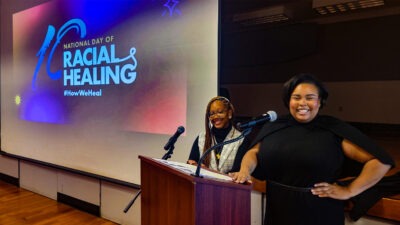

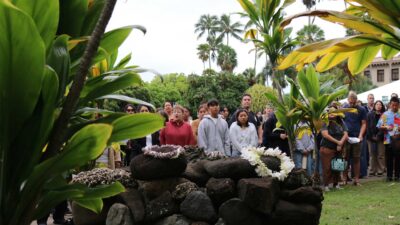
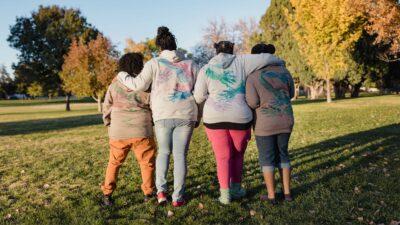

Comments